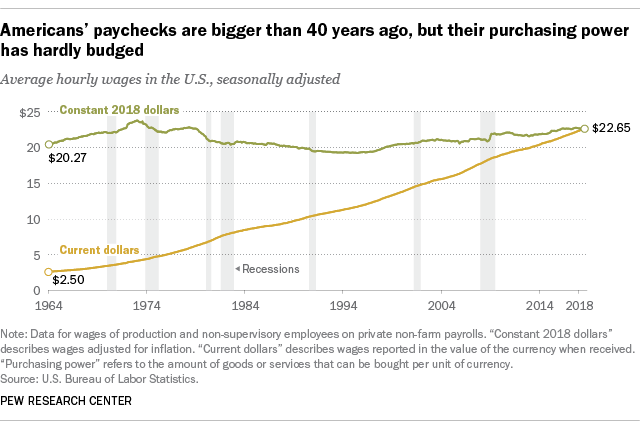Conaeolos
DP Veteran
- Joined
- Jun 5, 2017
- Messages
- 1,994
- Reaction score
- 416
- Gender
- Male
- Political Leaning
- Other
If this is true then you will have no problem naming the key product that one can not find cheaper by purchasing power today?LOL The green line is wage growth in actual dollars. It amounts to 6 cents a year in increased purchasing power over 40 years. That is not wage growth it is a disaster for the middle class.
Purchasing power is all over the map since we have a very different lifestyle and technological options:
Gold for example is like 4x more expensive.
A house however it depends, as discussed in post #33 and I think another. In at least 60+% of time the equivalent house by sqft is most certainly cheaper by purchasing power. There are areas where it is more expensive: san fransico bay area, but that is 100% land value due to higher population density. The problem with looking at the average price verse average wage is the average sqft per house was almost half the size in 1964. The income was also distributed differently as less of the top incomes were coming from 2 sources and there were more big families cover by a lower income. Another factor often left out is prime rate. A home in 1980 for example had the prime rate 6-12% range so price is relative to payments not sales price. All and all, the fact the avg sqft per year has gone up almost every year, should go to show people have more a lot more purchase power to upgrade.
Then there are very hard to compare products like cars, we have a very different transportation structure today. In some cases, it actually cheaper and more convient for a person to use a car share or uber than own a car. Car are also a lot more advanced. What is an equivalent car? A car with the same feature for example may run sub $10,000 today[less if you account for better safty standards].
Education - the returns are factors higher? Is a product being more expensive as a product of having a higher ROI not relevant?
Living Costs? New necessary expenses like internet, how should they factor in?





